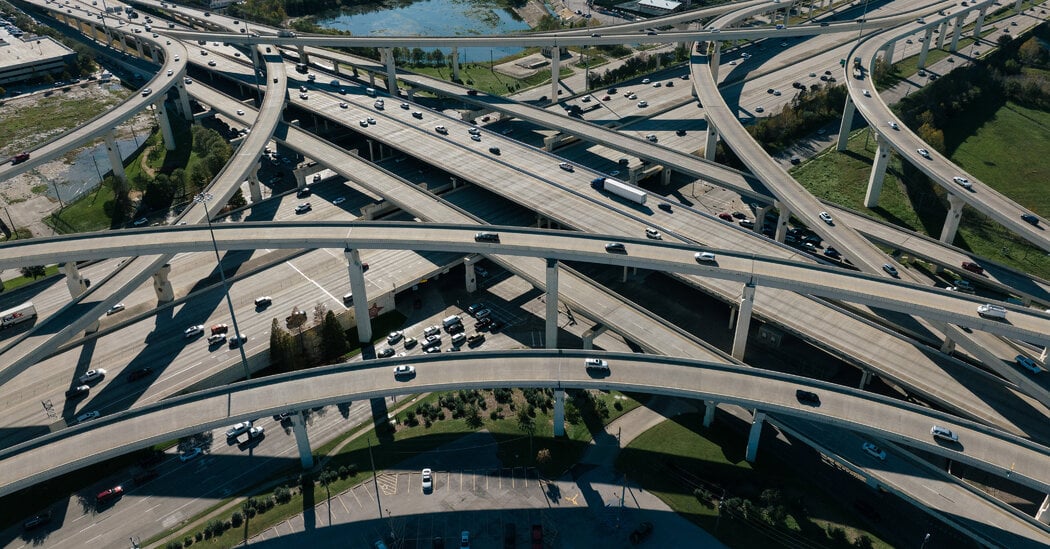For critics of widening projects, the prime example of induced demand is the Katy Freeway in Houston, one of the widest highways in the world with 26 lanes.
Immediately after Katy’s last expansion, in 2008, the project was hailed as a success. But within five years, peak hour travel times on the freeway were longer than before the expansion.
Matt Turner, an economics professor at Brown University and co-author of the 2009 study on congestion, said adding lanes is a fine solution if the goal is to get more cars on the road. But most highway expansion projects, including those in progress in Texas, cite reducing traffic as a primary goal.
“If you keep adding lanes because you want to reduce traffic congestion, you have to be really determined not to learn from history,” Dr. Turner said.



Yup. Been plenty of studies to show that increasing lanes only alleviates traffic in the short term and long term only makes it worse. Better to spend money on trains and busses that actually work and get people where they need to go with minimal hassle and a reasonable cost than to do this crap.
to me it’s like the military industrial complex - they don’t care what evidence supports, they want their fucking money and they’ll keep building roads until it’s a giant parking lot from sea to fucking sea. we could have an ecosystem, but fuck you, because cars.
I already see the angry republicans on Fox news raging on how their precious tax dollars are being wasted just to benefit poor people
Yeah it’s too bad only poor people can ride trains :(
It also costs the taxpayer more because of maintenance
I don’t necessarily disagree that it costs more, I have no idea but it seems logical to me that it would. However, even if it is cheaper, public transit solutions also have maintenance.
Far less maintenance, and it’s generally directly supported by rider fares instead of petitioning for government tax money.
Also the density of passengers on transit justifies the costs. 90%+ of all cars have a single person, whereas transit is on average magnitudes more. On that basis alone transit is far far cheaper.
Fares alone do not pay the bills. Buses are always subsidized (which is totally fine IMO. Every fine metro area has a good transit system, and it should be affordable to all who would want to use it.)
True enough. But my point still stands that there are fares that are collected that help offset operational and maintenance costs.
It’s still cheaper than maintaining huge roadways.
Trains predate cars and busses have always been with us since the car. People have voted – with their cars.
The Interstate Highway System started in the 1950s. Population has more than doubled since then. Of course, we have more traffic, we have more people!
The auto industry lobbied to kill public transportation back in the day to sell more cars. For a recent example see Ellen Musk and the Hyper Loop.